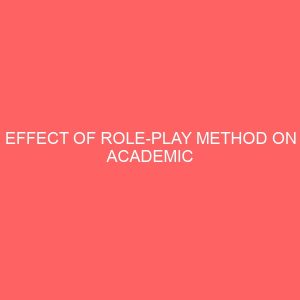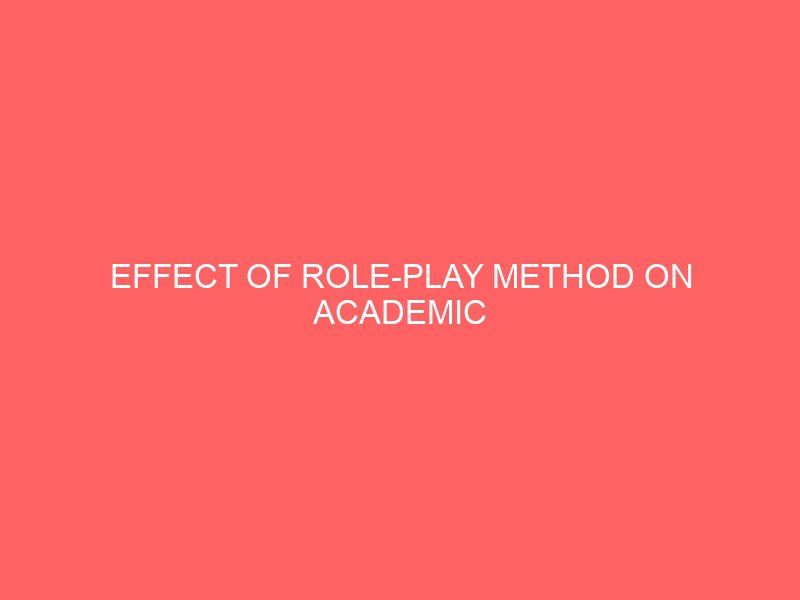Description
Abstract
The study investigated the effect of role-play method on students’ academic achievement of biology students in selected secondary schools in Kano metropolis. Role play method of teaching allows students to discover specific information by themselves before they make a generalization. Six research questions and six null hypotheses guided the study. Quasi-experimental design was adopted for the study, specifically, non-equivalent control group design. The study was carried out in selected schools in Kano metropolis. The sample for the study comprised of 80 SS II students from two intact classes in two secondary schools in Kano metropolis, drawn using multi-stage sampling techniques. The experimental group was taught using a role-play method, while the control group was taught using the conventional lecture method. The treatments lasted for four weeks. Two instruments were used for data collection in the study namely Biology Achievement Test (BAT). Data collected were analyzed using mean, standard deviation and Analysis of Covariance (ANCOVA). The results revealed that role play instructional method was superior to the conventional instructional methods in facilitating students’ performance and interest in basic biology. There was no significant difference in the mean scores of male and female students in biology after the treatment, although male students performed slightly better than their female counterparts. Finally, the limitations of the study and suggestions for further studies were made.








Reviews
There are no reviews yet.